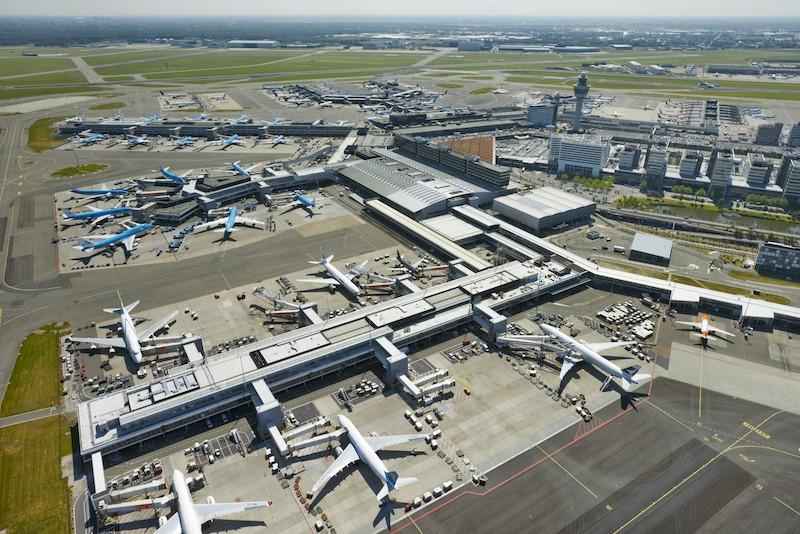
Schiphol Group operates Amsterdam Schiphol Airport, as well as a number of other airports in the Netherlands.
Dutch airports operator Schiphol Group has once again come under fire for environmental reasons, after being reprimanded by the Dutch Labor Inspectorate for not acting quickly enough to protect staff from harmful emissions.
The action against Schiphol follows a call for enforcement by the Federation of Dutch Trade Unions in December 2021. After studying the complaint, the Labor Inspectorate ruled that Schiphol and eight ground handling companies must accelerate the replacement of diesel-powered ground handling equipment by the end of 2023 to protect employees from carcinogenic fumes. Staff who are may be exposed to hazardous substances must also have access to regular health checks.
Building on this initial ruling, the Labor Inspectorate has now launched a public consultation over aero-engine and auxillary power unit (APU) fumes at Amsterdam Schiphol Airport, paving the way for further enforcement. Specifically, the Labor Inspectorate is proposing changes to the airport’s arrival and departure procedures and measures related to APU use, as well as potentially mandating airlines to invest in electric aircraft facilities.
“The Inspectorate has held up a mirror that cannot be ignored. It is clear that working conditions at Schiphol must improve,” Schiphol CEO Ruud Sondag says. “It is unfortunate that we and the sector have not been sufficiently successful in solving this ourselves and that the Labor Inspectorate has to get involved.”
Schiphol recently introduced new rules to limit engine use during taxiing and cut APU use. Staff have been issued face masks, and procedures have been changed to increase their distance from emission sources. The airport is also performing experimental research into cleaning air on the apron to improve air quality. However, Sondag acknowledges that “things must be done faster and better.”
“Schiphol is creating a complete package of measures to minimize employee exposure. This is a complex task because several of the necessary (technological) solutions are not yet available,” the airport says, adding that it will study the Labor Inspectorate’s proposals and respond with its views.
This will come as a further blow to Schiphol, which is already facing a capacity cap reduction to cut noise pollution. However, this is currently in limbo, because a court recently upheld airline complaints against the Dutch government for not following proper European processes.
Schiphol’s airline operators are already taking steps to minimize their emissions. For example, Qatar Airways has just announced a multi-million-dollar contract with Shell, covering the uplift of 3,000 metric tons of sustainable aviation fuel (SAF) from Schiphol.
Qatar said this volume represents “at least 5%” of its fuel requirements in Amsterdam for its fiscal 2023-24, offsetting approximately 7,500 tons of carbon dioxide. The deal forms part of the Oneworld alliance’s plans to achieve 10% SAF use by 2030 across its member airlines.





